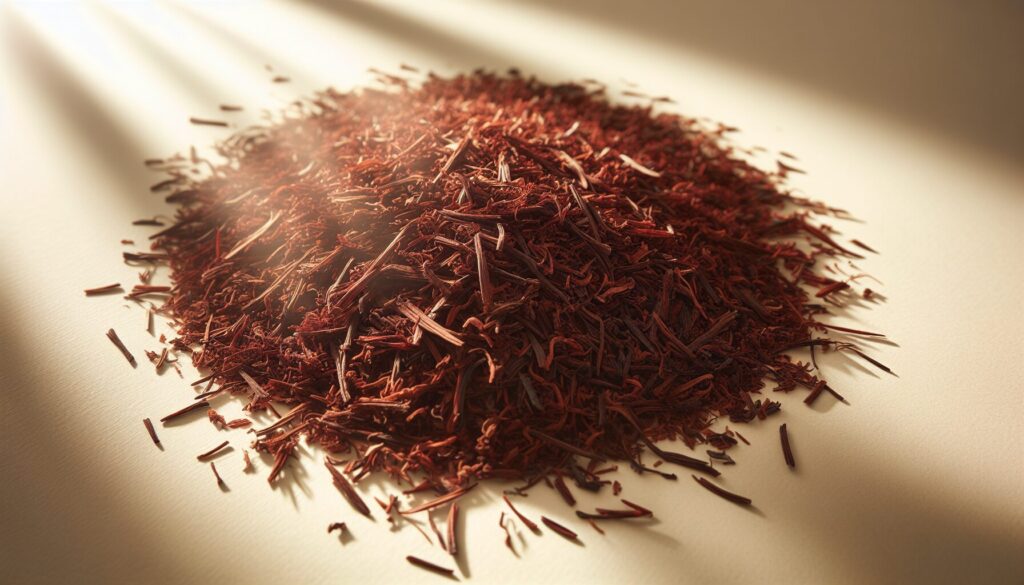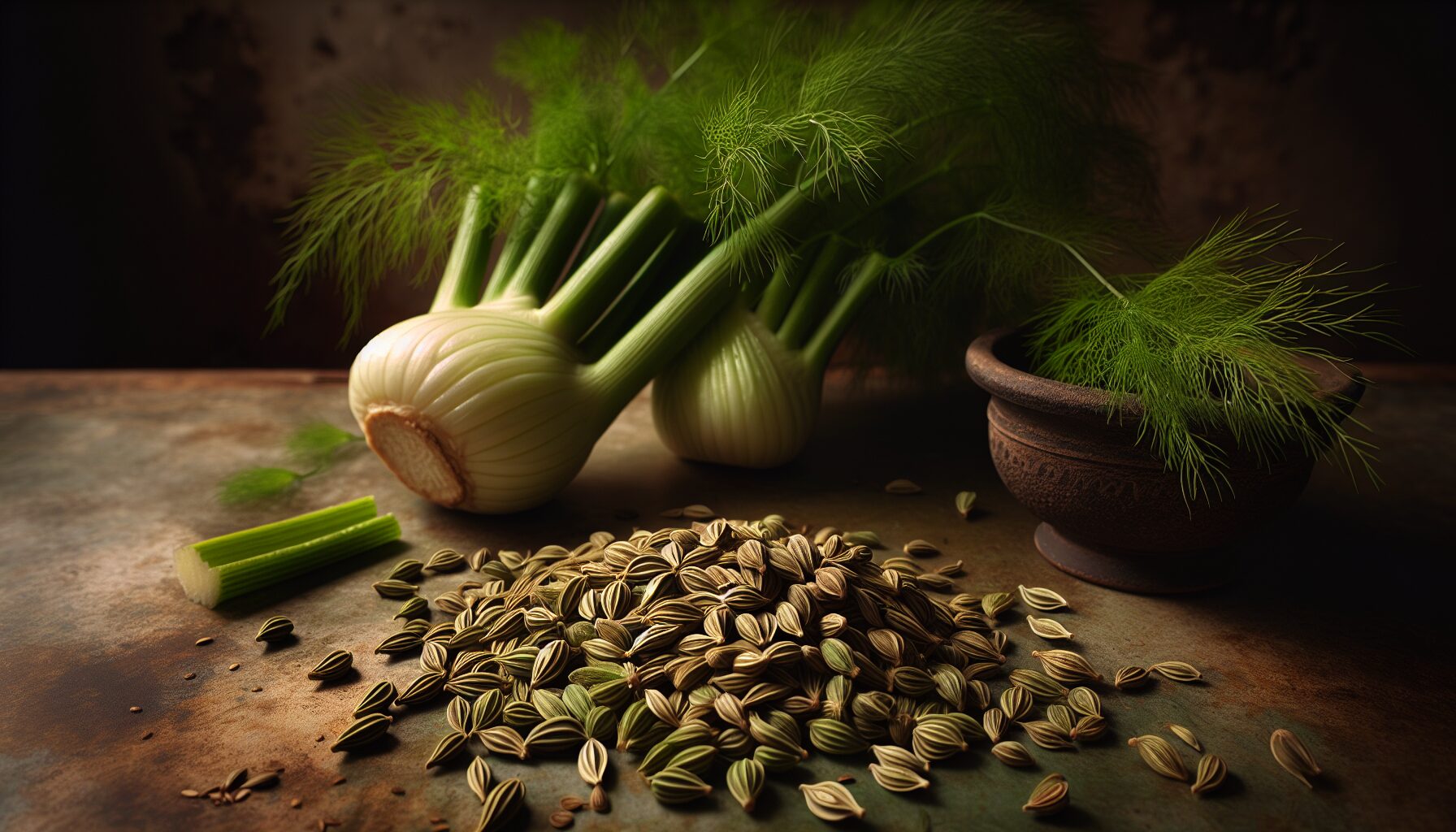
Rooibos Tea Benefits: Naturally Caffeine Free Tea
Rooibos tea is made from the leaves of the rooibos plant and has many potential benefits that are well known to many natural health practitioners. Ancient cultures, healers and shamans revered the properties of herbal teas such as rooibos. Herbal teas, such as rooibos tea, have made a massive resurgence and are increasingly popular.
Rooibos is translated as red bush, or red forest, because of its wide bushy growth and red coloured leaves when left to dry. It grows as a green bush like plant and is resistant to dry weather conditions. Rooibos is a needle like leafy plant that originates from South Africa. You see needle like leaves on plants such as pines. Rooibos tea is very fragrant and has a slightly sweet taste.
The leaves of rooibos are naturally rich in bioactive plant compounds specific to rooibos, just like a regular green or black tea. Herbal teas and herbs, rich in plant bioactive compounds, are widely recognised for long term health benefits. These bioactive compounds within rooibos tea are thought to have anti-inflammatory and antioxidant benefits.
Here we will go through the potential benefits of rooibos tea to determine its key health promoting qualities.

Rooibos Tea Influence On Fats
Rooibos tea may be able to reduce the levels of unhealthy fats and improve levels of healthy fats in the blood. One study found that levels of HDL were improved and levels of LDL were reduced through regular rooibos consumption. Through interactions with fats in the blood, rooibos is thought to have these effects, improving blood lipid profiles.
Lipid profiles are really important for maintaining optimal cardiovascular health, seeing as the accumulation of unhealthy lipids, or fats, in the blood is highly correlated with strokes and heart attacks. Rooibos may also encourage slight weight loss through activities on fatty acids, including fatty acid accumulation. There is also evidence that the regular consumption of rooibos tea can influence insulin sensitivity, possibly helping to improve glucose uptake, which is implicated in diabetes.
This effect on lipid profiles may be due to rooibos antioxidants. Antioxidants, such as those in rooibos tea, are considered to be preventative of chronic diseases, including diabetes and cardiovascular diseases.

Rooibos Flavonoids
Rooibos has been shown to have antioxidant properties. This may be due to a high concentration of flavonoids that are found deep within rooibos leaves. Herbal infusions, such as rooibos tea, are made using hot water that degrades the outer plant tissues. This allows for the infusion of bioactive compounds from deep within the rooibos plant. Rooibos extract supplements are also available for consumers, where the plant has been highly broken down mechanically.
Herbal infusions made from rooibos contain flavonoids and phenolic acids, which have been proven to have antioxidant activity. Rooibos flavonoids have been shown to be bioavailable, improving in the blood with rooibos consumption. Aspalathin, nothogain, vitexin and orientin are thought to be the most bioactive flavonoids in rooibos tea. In one study, they were shown to prevent dangerous free radical molecules from forming.
Free radicals are unusually energised molecules that can damage cell parts with their uncontrolled structural energies or electrons. They dissipate energy on DNA, for example, which can lead to cancers if certain genes are damaged. Regular consumption of rooibos tea may therefore have cancer preventative benefits.
Regular consumption of rooibos tea also improved levels of reduced glutathione, increasing significantly by about 35%. This is one the body’s most important antioxidants, being implicated in cellular ageing by reducing oxidative stress build ups in the body. This is another means as to how rooibos tea could have cancer preventative effects. It also indicates that rooibos antioxidants can support with maintaining natural levels of cellular stress.
One study showed rooibos may have a topical antiaging use, where an extract reduced wrinkles in women. Rooibos tea may also supress inflammation in the body through reduced inflammatory cytokine production, this effect may help to reduce adrenal gland stress too.
Aspalathin And Nothofagin
Rooibos tea flavonoids, such as aspalathin, may also help to optimise overall body metabolism. Nothofagin may assist with optimal kidney health, through antioxidant protection from cellular damage. Rooibos tea has also been shown to help with the regeneration of the liver and could assist with normal body detoxification.
Nothofagin, found in rooibos tea, may also help to reduce blood pressure through nitric oxide signalling in blood vessels. This reduction in blood pressure, with vasodilation, could help to reduce risk of heart diseases, allow more nutrients to reach tissues, ensure optimal organ functioning and protect of brain health.
Naturally Caffeine Free
One important benefit to rooibos tea is that it is a naturally caffeine free drink. Rooibos doesn’t need to go through any processing to be caffeine free, unlike regular teas or coffees. Many teas that contain caffeine naturally have to go through chemical processing to remove the caffeine. With rooibos tea you get ready made and natural caffeine free drink. If you are looking for a naturally caffeine free tea, rooibos could be for you.
Caffeine is a natural stimulant, acting on the nervous system, that increases cellular cortisol levels. This is a stress hormone that is responsible for your body’s ability to adapt to stressful environments and can be useful. That is thought to be why the cortisol response has developed. Elevated stress hormone levels have varied effects within the body, some of which may be unwanted. Chronic elevations in stress hormones, such as cortisol, are highly linked to premature ageing and neurodegenerative diseases. Caffeine can also cause unregulated changes in blood levels of other hormones, including sex hormones, which may have implications for acne suffers.
While the effects of caffeine on growth are complex, caffeine may hinder healthy growth in muscle cells through overall hormonal changes and resulting cell signals. In exercising groups, growth hormone levels were reduced following exercise when they took caffeine. These may be other reasons why you may find rooibos tea to have benefits for your health.

Melatonin
One study found that melatonin levels significantly improved with the regular consumption of rooibos tea. This is a hormone that is made at night by the pineal gland to help regulate sleep wake cycles. Rooibos tea could therefore have benefits for the normal regulation of hormones in the body and optimal responses to our environment.
Low In Tannins
Importantly, rooibos is also low in tannins. While these plant phytochemical do have their uses, tannins are plant deterrents. Tannins, found in really high amounts in wine or grapes, are molecules that limit animal plant consumption and therefore protect plant survival.
Tannins can bind to proteins, limiting their absorption. This has consequences for healthy cell growth. They can also bind to digestive enzymes, further effecting nutrient intake and further limiting cellular growth or tissue recovery. If you are an athlete or sports person, you would most likely be avoiding high tannin containing foods. Rooibos tea could be your ideal morning drink of choice in that case.
However, tannins in mild quantities can also have apoptotic effects, when cells and harmful cells of the body naturally die off. That preserves the healthy status of cells in the body and could provide preventative effects on cancer or cancer growth.

Summary
Rooibos tea benefits are well known to many natural health practitioners and have made a resurgence recently, with the increase in popularity of herbal teas. The leaves of rooibos are naturally rich in bioactive plant compounds specific to rooibos and just like a regular tea.
Rooibos tea may reduce LDL levels, also improving HDL levels, which improves blood lipid profiles. Rooibos tea antioxidants may have interactions with fats in the blood, giving it these cardiovascular health promoting qualities. Regular rooibos tea consumption can influence insulin sensitivity too, also reducing diabetes risk.
Rooibos flavonoids are important bioactive plant compounds, with a high antioxidant activity. Rooibos tea compounds like nothofagin or aspalathin they can neutralise damaging free radicals proving preventative actions against cancers and organ damage.
They seem to conserve body glutathione levels too, an important marker of cellular ageing and indicator of cell stress. Rooibos tea may also supress inflammation, through reduced inflammatory cytokine production, reducing adrenal gland stress too.
Rooibos tea is a naturally caffeine free drink, offering a cortisol level preserving alternative to regular tea. Caffeine can alter sex hormone levels and this may not be desirable for acne sufferers. While this is debated, caffeine may also affect levels of muscle cell growth and this could influence exercise performance. Caffeine avoidance is another reason to consume rooibos. Rooibos may encourage improved melatonin levels, helping to regulate sleep wake patterns. It is also low in tannins which improves protein and general nutrient absorption, allowing for more optimal tissue recovery.
Rooibos tea presents itself as a healthy alternative to caffeinated and artificially decaffeinated drinks, with antioxidant and lipid profile benefits too.
For more interesting articles, see the main articles page below.





